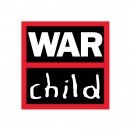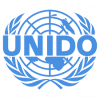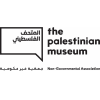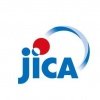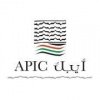Assessment of mental health & psychosocial needs and service...
Terms of Reference
Consultancy – Gaza, occupied Palestinian territory
Assessment of mental health & psychosocial needs and services for children 0-6 years in the Gaza Strip
Background:
War Child is an independent and impartial international non-governmental organization investing in a peaceful future for children and young people affected by armed conflict. We strive to empower children and young people, while enabling adults to bring about positive and lasting change in the lives of conflict-affected children and young people.
War Child has been working in oPt since 2006, and in the Gaza Strip since 2009 supporting partner community-based organizations (CBOs) through capacity building, improvement of child safe spaces, and psychosocial support. In 2018, War Child intends to assess the need for and availability of Mental Health and Psychosocial services to young children at the age 0-6 years (and caregivers as relevant). This is to inform and support War Child program planning of psychosocial activities to cover the gaps of services as possible through coordination and cooperation with community-based MH/PSS structures (formal or informal).
Objective of the Assessment:
The assessment will enable War Child to identify the MH/PSS needs, existing services and service gaps for 0-6 year-old children in Gaza. The findings and recommendations from the assessment should provide a solid base to support and guide program planning for MH/PSS services targeting 0-6 children and their caregivers, and care providers through community psychosocial support, capacity building of community and local structures, and service delivery. Additionally, the findings and recommendations should give a clear understanding of the feasibility of program planning in the context of the Gaza Strip. The assessments will identify and analyze children’s and communities’ needs, asking questions including:
What information has relevant research provided about the MH/PSS needs of 0-6 year-old children and their caregivers in Gaza. This may include research or reports related to mental health and psychosocial wellbeing difficulties and risks, vulnerability factors, effectiveness of provided interventions, recommended interventions and to which target groups.
What (Gaza-specific) vulnerability factors are having an impact on the psychosocial wellbeing of 0-6 year old children? From the point of view of MH/PSS specialists, community members, caregivers, care providers, and relevant others.
What MH/PSS services or programs targeting 0-6 year old children and their caregivers are currently available? Including formal and informal community services, service mapping resources for psychosocial related services.
At what level are services available? (using the MHPSS pyramid)
Which organizations are providing which MH/PSS services and programs to 0-6 years old children.
To whom do caregivers and community members naturally turn to seek MH/PSS support for their young children?
To what extent are current MH/PSS services meeting the demands/ needs of 0-6 children and their caregivers.
What gaps exist in the identified MH/PSS services for this particular group, and how can be fulfilled?
Where possible, these questions should be explored with attention to the differing needs of infants, toddlers and pre-school aged children and their caregivers.
Scope of the Assessment:
Programmatic scope: The assessment is intended to guide War Child planning of relevant activities and identify potential partner organizations. The assessment will focus on existing MH/PSS services targeting 0-6 year old children and their caregivers and care providers, identify discrepancies of available services in different geographical areas including the identification of current referral pathways.
Geographical Area: the assessment should cover all the Gaza Strip with more focus on the border areas from Beit Hanoun to Rafah.
Timeframe: The assessment will take place during the period November & December 2018.
Population: Caregivers of 0-6 year’s old children, care providers working with 0-6 year old children, MH/PSS specialists, MoH and MoEHE personnel, relevant NGO’s and INGO’s.
Coordination: The assessment must be designed taking into consideration the data already available from the local and international community and coordination bodies.
Guiding Principles:
War Child highly values participatory and ethical assessment process. Therefore, the following should be taken into account as guiding principles for the assessment:
Participatory assessment and bottom-up project design: communities should not be considered the subjects of assessment processes – rather their active participation must be facilitated by the design of the assessments so they can influence them and benefit from them. Without the participation of these community stakeholders, the assessments themselves will not generate valuable information for project design.
Utilization-focused: the results of the assessment should be practical and utilization-focused, with the aim to give concrete guidance to the next step of the project.
Compliance with professional and ethical standards: Inclusion and non-discrimination should be primary considerations: no assessment carried out under War Child’s responsibility or name may exclude people because of their gender or sexuality, age, religious or ethnic background. Participation in the assessment should be voluntary and based on informed consent. Privacy, confidentiality and the best interests of respondents must be respected. In line with the Do No Harm principle, the assessment process should never harm participants physically or psychologically and specific attention should be paid to protection risks. Care must be taken to maintain an approach of neutrality, impartiality and independence and to avoid inflaming social tensions/conflict or endangering community members or staff. Child safeguarding principles (according to the War Child oPt Child Safeguarding Policy) must be taken into consideration throughout the assessment process.
Suggested Methodologies:
The consultant will suggest an appropriate assessment methodology that is in line with the objective and scope of the assessment and its guiding principles. During the choice/design of the assessment methodology, the consultant should make sure that:
Existing resources are used: such as research papers, existing assessments and reports, evaluations by other INGO’s, PNA and NGO plans and reports, other relevant secondary materials.
The views and opinions of assignment related community members (formal and informal) are taken into account (e.g. caregivers, care providers, MH/PSS specialists and management of different levels).
A combination of assessment methods and participatory techniques are used, and assessment findings are triangulated and validated as much as possible.
Roles and Responsibilities
War Child will review, provide input, and discuss the suggested assessment methodologies, and ultimate selection of participants/informants to be involved in the assessment, technical support during assessment process, and review of draft assessments report and provide feedback.
The consultant is responsible for submitting a proposed assessment plan (including technical and financial), modify assessment considering War Child feedback, plan logistics of assessment, train assessment teams, and implement analyze and report of assessments’ findings in liaison with the War Child staff as much as possible.
Deliverables:
An inception report: a detailed plan for the assessment process, including consultant understanding of the ToR, the suggested methodology, participants, and tools, and timeframe to carry on the assessment and the assessment team. The report should show how issues of confidentiality (data collection) and duty of care will be managed.
Final version of the inception report: It should show that War Child feedback on methodology, assessment tools, and participants are taken into consideration, and best practices and minimum standards are incorporated.
Draft assessment report: should respond to the assignment objectives in assessing the MH/PSS needs and services to 0-6 age children, and identifying gaps and main service providers in the Gaza Strip.
Final assessment report: incorporating feedback from War Child on the draft report. The body of the final report should not exceed 50 pages excluding annexes and should include the following main section:
Executive Summary
Introduction
Methodology
Findings
Conclusion
Recommendations
Annexes
Presentation of findings: to present the method and main findings of the assessment in a meeting with War Child team.
Budget & Duration:
The deadline for submission of inception report is one week after acceptance of the offer based on the technical offer and discussion meeting.
The deadline for the submission of the draft of the assessment report will be a maximum of 30 days after the approval of the inception report by War Child.
The deadline for submission of the final assessment report is one week after receiving War Child feedback.
Conditions and Terms of Payment:
The consultant has to provide a detailed financial offer
The financial offer weigh 1/3 the score of the offer
The payment of the consultancy fee will be in one installment within a month from the delivery of the final report.
Key skills, technical background, and experience required
Essential:
Relevant academic qualifications and field experience preferably related to the wellbeing of 0-6 years old children
Knowledge and experience in psychosocial support, community-based approaches;
Knowledge and experience working in oPt and on the Gaza context, with a focus on vulnerable communities in Gaza Strip;
Extensive experience in the design and implementation of assessments;
Excellent analytical and report writing skills;
Fluency in English and Arabic (both spoken and written);
Understanding of issues and sensitivities required when working with vulnerable groups;
Experience with participatory research methodologies;
Desirable:
Experience of assessing, evaluating or managing psychosocial support programs;
Knowledge of and experience of community planning and emergency response planning;
Experience in training and supervision of assessment teams.
Application Procedure / Expression of Interest
The deadline for submission of expression of interest is 1st November 2018, and will consider both individual and group applicants, and companies. Only short-listed candidates will be contacted and invited to a discussion meeting. The expression of interest should include:
A letter of interest, highlighting the relevant knowledge, skills and experience of the applicant or company
Up-to-date CV
A technical offer describing the proposed methodology and approach to achieve the deliverables, and a timeline.
A financial offer showing details of the daily rate for each of the assessment team and other costs and total fee (in euros).
Technical and financial offers to be submitted electronically at [email protected] no later than 2 O’clock in 1st November, 2018.
Consultants of strong technical offers will be invited for a discussion meeting.
An inception report will requested from only the consultant to carry on the assessment.
Contact Details
For more information about the assessments, please contact War Child at [email protected]




